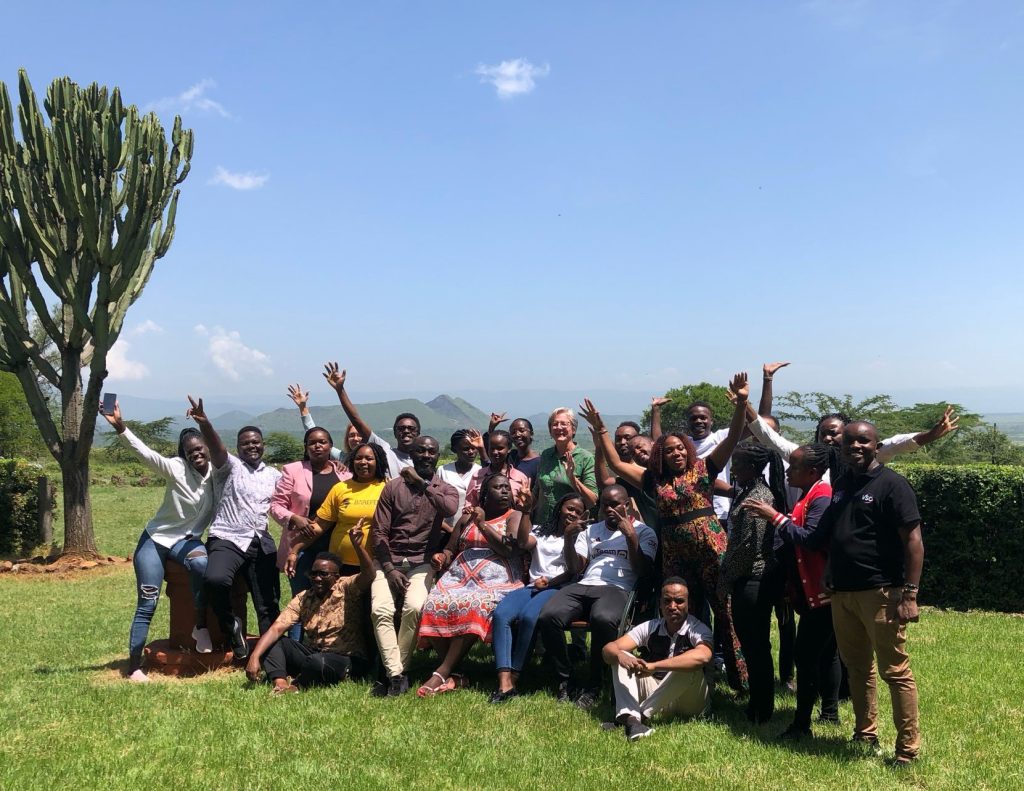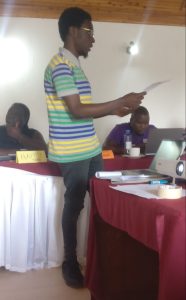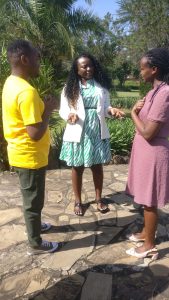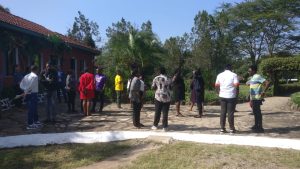Applying an intersectional lens: Training of Trainers
 18 June 2024
18 June 2024

What an incredible time! At the end of May, the Make Way Training of Trainers course was completed in Naivasha, Kenya, which develops the skills of trainers on the Make Way intersectional lobby and advocacy toolkit. With twenty collaborating partners and youth representatives participating from across the Make Way implementing countries of Ethiopia, Kenya, Rwanda, Uganda and Zambia, the course strived to improve understanding of intersectionality, show how to apply and provide training on the Make Way tools and enhance the participants’ training skills.
Intersectional lobby and advocacy toolkit
 The Make Way SRHR toolkit is a comprehensive set of materials that strives to improve the intersectional SRHR lobby and advocacy skills and knowledge of civil society groups and organisations. This enables game-changing intersectional SRHR lobby and advocacy.
The Make Way SRHR toolkit is a comprehensive set of materials that strives to improve the intersectional SRHR lobby and advocacy skills and knowledge of civil society groups and organisations. This enables game-changing intersectional SRHR lobby and advocacy.
Throughout the week, the participants were introduced to different intersectional lobby and advocacy tools. Each of these tools can be adapted to each civil society organisation and individual using them. The two tools that particularly stood out to the participants were:
- The Intersectional See-Judge-Act Tool (ISJA): a tool facilitating community discussions on religious SRHR issues using religious texts to identify barriers and actions needed for personal, social, and systemic transformation.
- The Intersectional-based Policy Analysis Tool (IBPA): a tool designed to evaluate policies, documents and plans for their consideration of SRHR, youth, intersectionality, and accountability.
We spoke to several of the participants to hear about their favourite tools, how they will apply their learnings to their work in Make Way (as well as other work) and some of their next steps with the tools.
Intersectional See-Judge-Act Tool (ISJA)
 For Vilda Atieno, Maggy Muke and Melaku Sihabat, the Intersectional See-Judge-Act Tool (ISJA) was the tool that stood out to them the most. Below they explain why.
For Vilda Atieno, Maggy Muke and Melaku Sihabat, the Intersectional See-Judge-Act Tool (ISJA) was the tool that stood out to them the most. Below they explain why.
Vilda Atieno, a member of the Make Way regional and global youth panel and the Kenya youth panel, found the Intersectional See-Judge-Act Tool (ISJA) to be eye-opening. It encouraged her to reflect on her own thoughts, actions, and judgments regarding SRHR and religion. Vilda states the importance of “looking at SRHR and religion on the same table.” The ISJA helps users find more space to listen respectfully to different opinions and values, prevent judgement and instead find a solution between different parties.
Maggi Muke from Zambian collaborating partner Save Environment and People Agency (SEPA),comes from a rural area in Zambia and meets many people “who are religious and embedded in traditional norms that really affect SRHR for young people.” The tool helps her find a way to use the bible and involve religious leaders to advocate for SRHR issues. Maggi also emphasises the importance of intersectionality. “In whatever we are doing, we should include intersectionality […], making sure that with each and every identity, we are able to help.” After the Training of Trainers, Maggi is organising a meeting back in Zambia with traditional leaders, young people, religious leaders and government departments, to explore the ISJA tool together. She aims to demonstrate and advocate “that even the bible is in support of SRHR issues that women and young people face. […] We need to support the young people.”
Melaku Sihabat from Ethiopian collaborating partner Redeem the Generation found the Training of Trainers course “wonderful”. He states that the training has given insight into viewing their different programmes through an intersectional lens and has helped them gain the skills needed to implement the Make Way tools throughout their work. He found the ISJA a new concept and easy to apply. Melaku explains that “there are so many taboos in the community that influence religious people and young people. [It is] good to see through the lens of this tool [and then apply this tool in our work] to give an opportunity to young people to discuss the issues [they face] and then have an action plan.” Melaku will share these experiences and learnings from the training with other civil society organisations that they work with based in Ethiopia.
Intersectional-based Policy Analysis Tool (IBPA)
For Steven Jethro Phiri and Tezara Mamo, the Intersectional-based Policy Analysis Tool (IBPA) was the most valuable.
Steven Jethro Phiri from Zambian collaborating partner ZAFOD, really enjoyed the Training of Trainers, emphasising that the training will “not only [help us] accomplish the goals of the Make Way project, but also in our work as ZAFOD”, showing the use of the tools beyond the Make Way programme. The IBPA tool stood out for Jethro because of the usefulness of the tool in analysing SRHR policies, as well as in other important national documents, legislation and strategies. Beyond the facilitation of the sessions, Jethro also valued the opportunity to learn from participants from other countries and how they use and apply the tools to actualise the Make Way goals.
Tezera Mamo from Ethiopian collaborating partner Organization for Development of Women and Children in Ethiopia (ODwACE) will involve the IBPA tool in policy revision, particularly for policy on women empowerment. At ODwACE they are leading the revision process for this policies, together with other Ethiopian CSOs. Beyond their own application of the tools, Tezera and ODwACE “will try [their] best to make intersectionality be implemented by all CSOs.”

Next steps
The Make Way programme is now proudly supported by a diverse group of twenty dynamic candidate trainers in intersectional lobby and advocacy tools. Their competences will be used in the Make Way programme to disseminate more largely the use of the tools, also to CSO’s beyond the Make Way Programme. The participants will continue strengthening their competences in a Community of Practice.
If you are curious to learn more about the intersectional lobby and advocacy toolkit, please see the toolkit here and/or contact us here.



